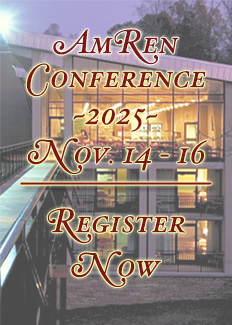Center for Immigration Studies Strikes Back
Jared Taylor, American Renaissance, March 18, 2010

The Southern Poverty Law Center (SPLC), founded in 1971 by Morris Dees and Joseph Levin, calls itself a “civil rights organization dedicated to fighting hate and bigotry, and to seeking justice for the most vulnerable members of society.” It also claims to be “internationally known for tracking and exposing the activities of hate groups.”
In fact, the SPLC’s purpose is to discredit and silence anyone with whom it disagrees. It never does this honorably–by argument or refutation–but by smear. Its favorite smear is to call people “haters,” and try to drum them out of polite society and certainly as far as way from a mainstream audience as possible.
The SPLC’S strategy is based on a sadly accurate assessment of the credulity and laziness of the mainstream media. Instead of producing data to support the view that diversity is a strength, for example, it simply says that anyone who thinks otherwise is a “hater” and should be shunned. This way, whenever a writer for USA Today or other such pea-brained publication starts sniffing around someone with an unorthodox idea, the SPLC tries to head him off with shouts of “hate-monger.” Most journalists are conformists with a deadline; far easier to take the push from the SPLC than to cudgel their brains with a new idea.
Until recently, a group had to have some angle on race or ethnicity for the SPLC to call it a “hate group.” Just about anything will do: an interest in race and IQ, noting that people naturally segregate, a preference by whites for their own society, skepticism about “diversity”–in short any deviation from orthodoxy. American Renaissance has been on the SPLC’S list of “hate groups” for about as long as it has existed.
Now the SPLC is branching out and calling any group that opposes mass amnesty for illegal immigrants a “hate group.” In 2007, as part of what it called a “Stop the Hate” campaign, it called the Federation for American Immigration Reform (FAIR) a “hate group,” and it has been sniffing all over the Center for Immigration Studies (CIS) and NumbersUSA for links to “hate.” All three are explicitly non-racial, even “anti-racist” organizations that make a soberly factual case for low levels of legal immigration, but the SPLC hoped to shut off their contact with the media and the public, and thus silence the strongest voices that oppose amnesty.
It is human nature to take a sudden and special interest in injustices when one becomes a victim, and today CIS held a press conference at the National Press Club to denounce the SPLC. A panel led by Mark Krikorian, executive director of the CIS, forcefully argued that the SPLC’s “Stop the Hate” campaign is really a “stop the debate” campaign.
Mr. Krikorian opened by warning that the SPLC’s activities raise the question of whether Americans will be allowed even to have a debate about immigration if immigration control can be equated with “racism.” “The accusation of racism is the most serious charge you can make in America,” he said, noting that even serial killer Jeffrey Dahmer felt compelled to deny that when he killed and ate non-whites it was because of race. “When a taboo is that strong,” said Mr. Krikorian, “someone is going to exploit it for political ends.”
Mr. Krikorian pointed out that every significant critic of high levels of immigration is attacked as nativist, xenophobic, or worse, and attributed this to “a coordinated effort funded by the pro-amnesty organizations.” This is the question he said we now face: “Is it permitted to have a debate or should those who disagree with the elites be silenced?”
Mr. Krikorian then introduced a senior researcher at CIS, Jerry Kammer, who is the author of a CIS report that was released today. It has an arresting title, Immigration and the SPLC: How the Southern Poverty Law Center Invented a Smear, Served La Raza, Manipulated the Press, and Duped its Donors, and Mr. Kammer’s comments did it justice. He noted that the SPLC is nothing more than a kangaroo court set up to condemn anyone who doesn’t think the United States should let in millions more people. Founder Morris Dees, he said, is mainly interested in raising money and “has a long history of sensationalism and dishonesty.” He also underlined that fact that although the center styles itself as a neutral “civil rights” group, it worked hand-in-hand with the National Council of La Raza in its attempts to shut down debate.
Mr. Kammer also decried Mr. Dees’s fund-raising techniques, which give the impression that the Ku Klux Klan is about to take over. He noted that the SPLC has a strong Jewish donor base in Hollywood and New York, and claimed that when Mr. Dees pitches an appeal to these groups he uses his middle name of Seligman to give the false impression that he is Jewish. (In a March 19 note to AR, Heidi Beirich of the SPLC denied this.)
Quoting from his own report, he put the “Stop the Hate” campaign in its place:
“In the name of defending democracy, it seeks to stifle one of democracy’s most vital functions, the vigorous discussion of important public issues. It demonstrates that the Southern Poverty Law Center has become a peddler of its own brand of self-righteous hate. It is a center of intolerance, marked by a poverty of ideas, a dependence on dishonesty, and a lack of fundamental decency.”
Mr. Kammer hit a false note, however, when he conceded that some of the SPLC’s criticism of long-time immigration-control activist John Tanton was justified. Dr. Tanton, a Michigan eye doctor now in his 70s, was the man who originally founded CIS, FAIR, and NumbersUSA, and it was churlish to say he had “a provincial temperament and a tin ear for the sensitivities of immigration.” Mr. Kammer went on to quote a former executive director of FAIR, Roger Connor, as saying that Dr. Tanton had pitched too large a tent for immigration control: “[I]f you don’t explicitly exclude the fringe groups from your tent, you can ruin it for the majority of Americans–those of us who are just as opposed to intolerance or racism as we are to excessive immigration.” This is the sort of thing for private discussion and reflection; not press conferences.
The next speaker was Ken Silverstein, the Washington editor of Harper’s. He noted that he is married to a Dominican whose mother immigrated illegally and is, if anything, an open-borders booster, but that he found the SPLC and its methods despicable. He said that like most people he had started out respecting the center and only later discovered it was “a fraudulent organization headed by a huckster” that “made a lot of money by exploiting black pain and white guilt.”
Mr. Silverstein spoke about the group’s obsessive money-raising, noting that Mr. Dees promised to stop going through donors’ pockets when the endowment hit $50 million, and again when it hit $100 million. Now, even after the stock market decline, the center is sitting on more than $200 million, and last December it was fishing for yet more to help Mr. Dees celebrate his 75th birthday. Mr. Silverstein pointed out that Mr. Dees has been inducted into the Direct Marketing Association Hall of Fame, an honor he richly deserves.
Mr. Silverstein noted that the SPLC’s name suggests it spends money on poor people but this is false. People who live in Montgomery, Alabama, where the center has its lavish headquarters, call the building “the poverty palace.” His conclusion: “I really think it’s an organization that needs to be exposed and criticized.”
The next speaker was Carol Swain, who teaches at Vanderbilt University and has written in a remarkably fair-minded way about what she calls “white nationalism.” She said she was hesitant to be too close to groups like the CIS, precisely because of criticism from the likes of the SPLC. However, she began to notice that the center was increasing its national count of “hate groups” every year mainly by so baptizing organizations that have been around for years.
All scales fell from her eyes when the SPLC went after her: “When my face was smeared across the papers in my state with accusations that I was an apologist for white supremacy I thought it was time to get involved.” Prof. Swain has also been closely associated with Lou Dobbs, and was incensed at the way the SPLC tried to smear him and drive him from the airways.
Prof. Swain was the only speaker to point out that there is a racial double standard in America, saying that “if you’re white you lose your rights to criticize and protest.” She said that “white people are not allowed to have a role in this discussion about the direction of our country” and that any attempt to drive their point of view underground only increases suspicion and polarity. She added that “if we are concerned about extremists, the best thing we can do is include their voices in the dialogue.” Instead, the SPLC simply shuts down its opponents and “is actually making more converts to extremist organizations than they would if they let them talk about their concerns.”
Prof. Swain concluded by saying that the SPLC has far overplayed its hand and that its main spokesmen for handing out the “hate” label should be fired. As for immigration itself, she said, “We are a nation of laws and not just total chaos. . . . and I don’t know of any jobs Americans won’t do.”
I was among those who asked questions from the floor. I said it wasn’t clear to me whether the panel was denouncing the very concept of calling certain groups “haters” or whether they were simply asking that the SPLC’s definition be adjusted so as not to include them. Mr. Kammer replied in a manner that suggested he thought the whole enterprise was illegitimate. Mr. Silverstein appeared to disagree, saying he thought the Minutemen were “crackpots” and that Sheriff Joe Arpaio of Arizona does things that are “reprehensible.” His conclusion: “I think people should be held accountable for what they say and should be confronted for their beliefs.”
Mr. Krikorian’s reply was that in the immigration-control movement “there really are kooks and there are people who are simply wrong. Jared Taylor is objectively wrong but not a kook.” He added that unless someone were doing crazy things like “promoting violence” or “burning crosses” he should not be excluded from public discussion. He then said he was confident that if he were ever to debate me he would win, but I do not think this is a debate he would welcome.
The CIS press conference was well attended, but mostly by sympathizers and members of non-profits rather than the press. I counted only one regular pressman–there may have been others I did not recognize–but he said he had come for information and not to write a story.
The SPLC is certainly a deserving target and CIS has done a great service by publishing and promoting its report. Let us hope it gets wide coverage but even if it does not, it is an important record of what Mr. Kammer so correctly called “a fraudulent organization headed by a huckster.”
















